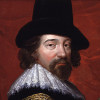“ Thus we cannot escape the conclusion that a wise man is a better measure of things than a fool. ”
Bertrand Russell, A History of Western Philosophy (1945). copy citation
| Author | Bertrand Russell |
|---|---|
| Source | A History of Western Philosophy |
| Topic | escape conclusion |
| Date | 1945 |
| Language | English |
| Reference | |
| Note | |
| Weblink | http://www.ntslibrary.com/PDF%20Books/History%20of%20Western%20Philosoph... |
Context
“He urges, for example, that when a doctor foretells the course of my illness, he actually knows more of my future than I do. And when men differ as to what it is wise for the State to decree, the issue shows that some men had a greater knowledge as to the future than others had. Thus we cannot escape the conclusion that a wise man is a better measure of things than a fool.
All these are objections to the doctrine that each man is the measure of all things, and only indirectly to the doctrine that “knowledge” means “perception,” in so far as this doctrine leads to the other.”
source


